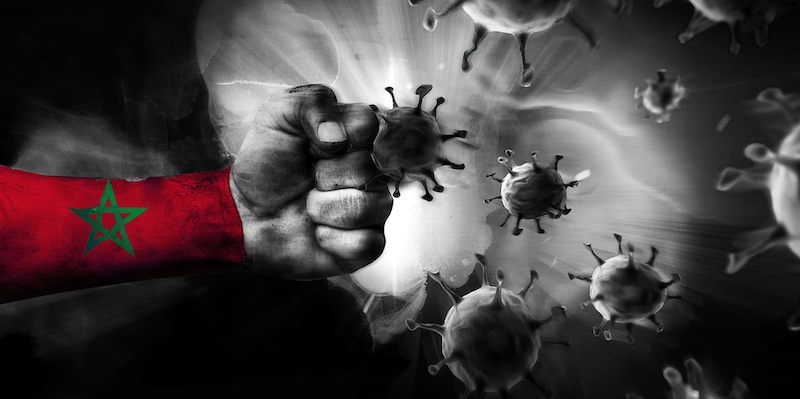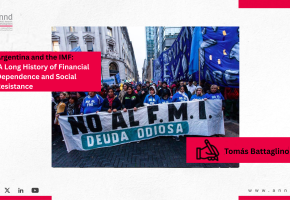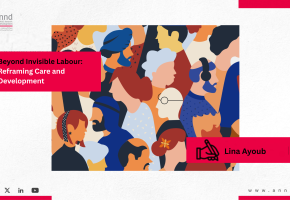
Morocco’s Fight Against COVID-19
The COVID-19 wave evoked profound multi-dimensional and multi-faceted repercussions in Morocco, some of which were political, while others were economic and social. It is difficult to grasp the entirety of this pandemic’s ramifications, especially that it brought numerous pre-existing problems to the surface. The situation necessitates the success of an alternative developmental model. Henceforth, the article will illustrate the general political, social, and economic environment in Morocco and efforts to face this crisis.
Indications of an economic crisis on the horizon
The world has been ravaged by COVID-19, which threatened people’s public health. This enticed a number of states to take a series of measures to limit the outbreak. The pandemic has altered the features of adopted policies, specifically on the socio-economic level. Thus, strategies were altered, priorities were set, and disparities surfaced between different countries’ competency in limiting the spread of the virus. Many countries witnessed a high number of infections and deaths. Other states managed to control the pandemic.
Consequently, a multitude of analyses and readings emerged on how to deal with this novel phenomenon that has challenged all axioms. For instance, it was a long-held belief that industrial states were strong enough to weather any storm; however, some of these states were incapable of facing the pandemic, which exposed the frailty of these countries’ health systems and their collapse under pressure. In tandem, numerous questions were posed on the extent to which the measures taken respected the political, economic, and social rights of citizens.
Morocco, as other countries, took several measures. On March 20th, 2020, the country declared a state of health emergency and limited the movement of citizens. Most economic and social sectors in Morocco lived through a state of quasi-suspended animation, except for a few vital sectors. Moreover, the Economic Intelligence Committee (CVE) was created, and a national fund was established to manage the pandemic and face its socio-economic repercussions.
The aim of these measures was to limit the outbreak of the pandemic and decrease the number of infected cases to match the hospitals’ capacities. But, these measures left an overwhelming economic shock in Morocco. The drastic decline in economic activities as well as in the purchasing power of citizens had dire effects on the economy. 958,000 employees in the formal sector announced that they have stopped working and were receiving compensation from the special fund for the management of COVID-19. Over 5.5 million families within the informal sector also benefited from aid. And out of 216,000 contractors involved in the National Social Security Fund, 134,000 stated that they were in a difficult situation due to the pandemic. Even those who were actively employed had a 50 percent cut to their monthly income. All these changes contributed to widening the schism between already existing inequalities.
Effects of COVID-19 on women and children
Although COVID-19 aggressively attacks the elderly and patients suffering from chronic diseases (95% of deaths involved people over 60 years old, according to the World Health Organization), its damages wreaked havoc among the ranks of women and girls. The constant presence of women in the same private space as their abusers has had a negative effect on their health and security, especially since most of the institutions that deal with victims of domestic violence (social security centers, and public facilities that deal with health, justice and security) have suspended their services due to the pandemic. International and national statistics indicate an increase in the number of cases of violence against women.
Closing down educational institutions and keeping children at home added to women’s burden of looking after others and providing care for them (such as children, elderly, and children with disabilities, etc.). Girls were not spared either. And instead of focusing on their online studying, they were forced to aid their mothers with daily house chores. It is to be noted that many women working in the informal sector found themselves unemployed and threatened by poverty more than ever.
A new system of living
Politically, the effects of COVID-19 instigated the issuance of numerous decrees, among which were imposing and lifting quarantine, limiting movement and gatherings, halting then resuming activities, closing then reopening of shops, adopting remote learning, and enforcing penalties in case of violation of the provisions of the state of health emergency (not wearing a face mask, commuting without special permit, propagating false news concerning the pandemic, etc.).
This stage was characterized by the wide margin of discretionary power vested in the public forces, which were locally charged with ensuring the implementation of the legal provisions related to the temporary restriction of some constitutional rights and freedoms, as well as examining the offenses and misdemeanors associated with violating the provisions of the state of emergency; thus, these public forces ensured the respect of social distancing measures decreed in this framework. This discretionary authority affects the dynamics of individuals with regard to wearing a face mask, holding gatherings, or commuting in public and between cities. It also has implications on the work of enterprises when it comes to conditions for reopening shops and resuming work in factories and production units. COVID-19 and human rights
This discretionary authority, with its elastic margins, created at times a sense of violation and injustice. It even led to tense situations in some instances.
CSOs, especially advocacy organizations, noted that despite their constitutional right to do so they were neither involved nor consulted on managing the resources allocated for the prevention of the pandemic. They expressed concern that the declared state of health emergency could be used as a pretext for any violation or act against the human rights of citizens, especially that there have been indications that numerous countries, including Morocco, have violated human rights. OHCHR included Morocco on a list of countries where the measures taken by the police to enforce quarantine were deemed worrisome.
Morocco’s plan to combat COVID-19
Although the COVID-19 crisis caused grave damages and losses to Morocco, it also offered a chance to recognize the country’s strengths and weaknesses. This is pivotal, since Morocco is on the way to adopt a new development model. Despite the many accomplishments achieved on political, economic, and social levels, it is important to focus on the major challenges facing this new developmental model. And among these are eradicating poverty and increasing the capabilities of the middle class and limiting unemployment among the youth. This goes hand in hand with habilitating the human component to be at the heart of development, and achieve the desired social and spatial justice. Moreover, there is a need for the redistribution of wealth through a fair fiscal policy and supporting the social capital represented in volunteer, group, and rights work.
Hence, it is crucial to consider bolstering the role of the state in the new development model as follows:
- The ability to adapt to its new role, a modification dictated by the major changes resulting from the crisis, and that is by ending the deficit in health and food security.
- The need to ensure national sovereignty in strategic sectors.
- Working on facing and finding solutions to the economic crisis threatening Morocco due to the ramifications of the COVID-19 pandemic on the economy.
- Confronting the constraints hindering the implementation of new social policies, especially a profound reform to the health system, and the acceleration of reforms related to the educational system and the generalization of social protection.
- The need to expedite the transition of energy and ecology towards a new development model that is sustainable, equitable, and inclusive, in harmony with sustainable development goals (SDGs 2030).
- Repositioning of Morocco’s place on the global and continental maps, so that it could keep up with world changes.
Espace Associatif – For a Democratic development
Resources:
Economic, Social and Environmental Council
The High Commissioner for Planning
The official website of the United Nations
Recent publications

